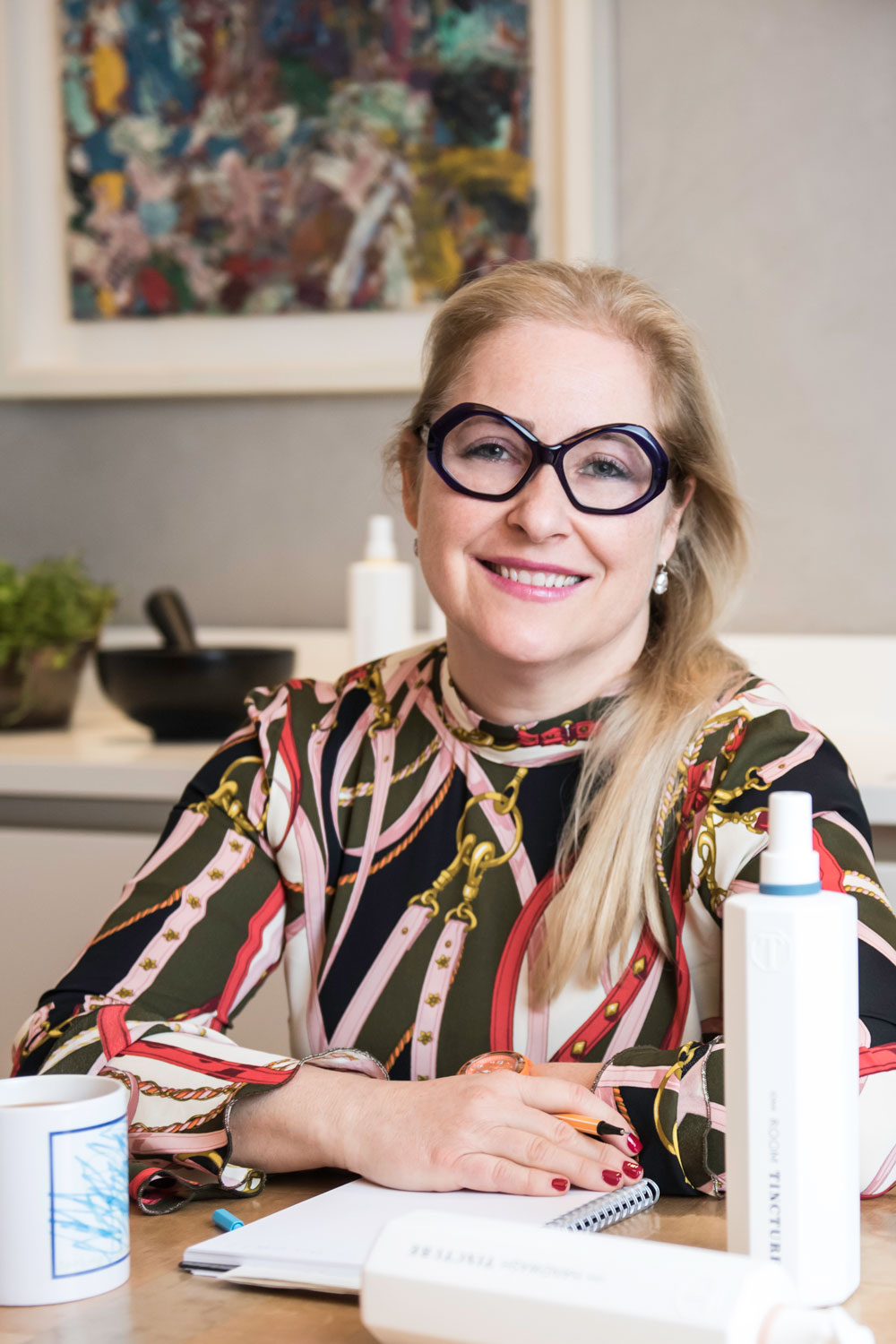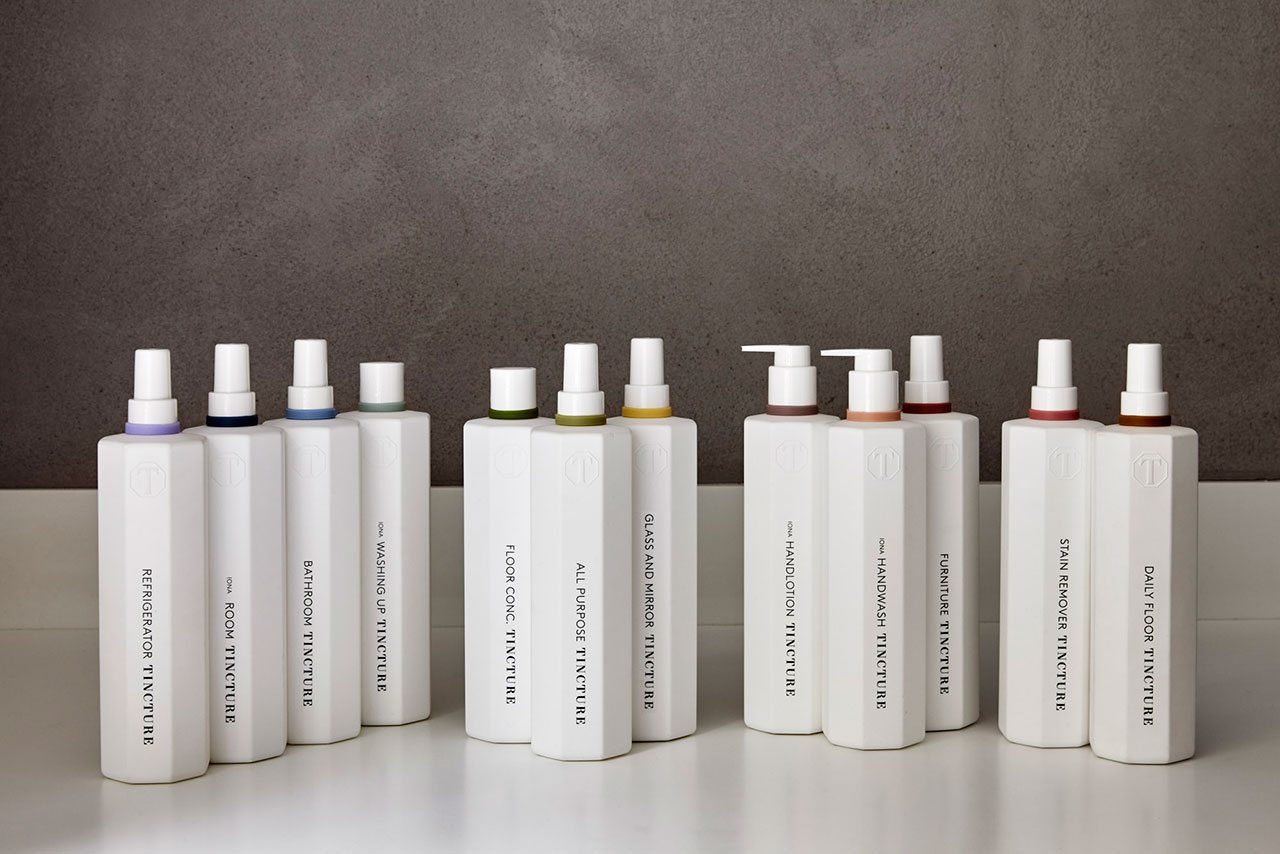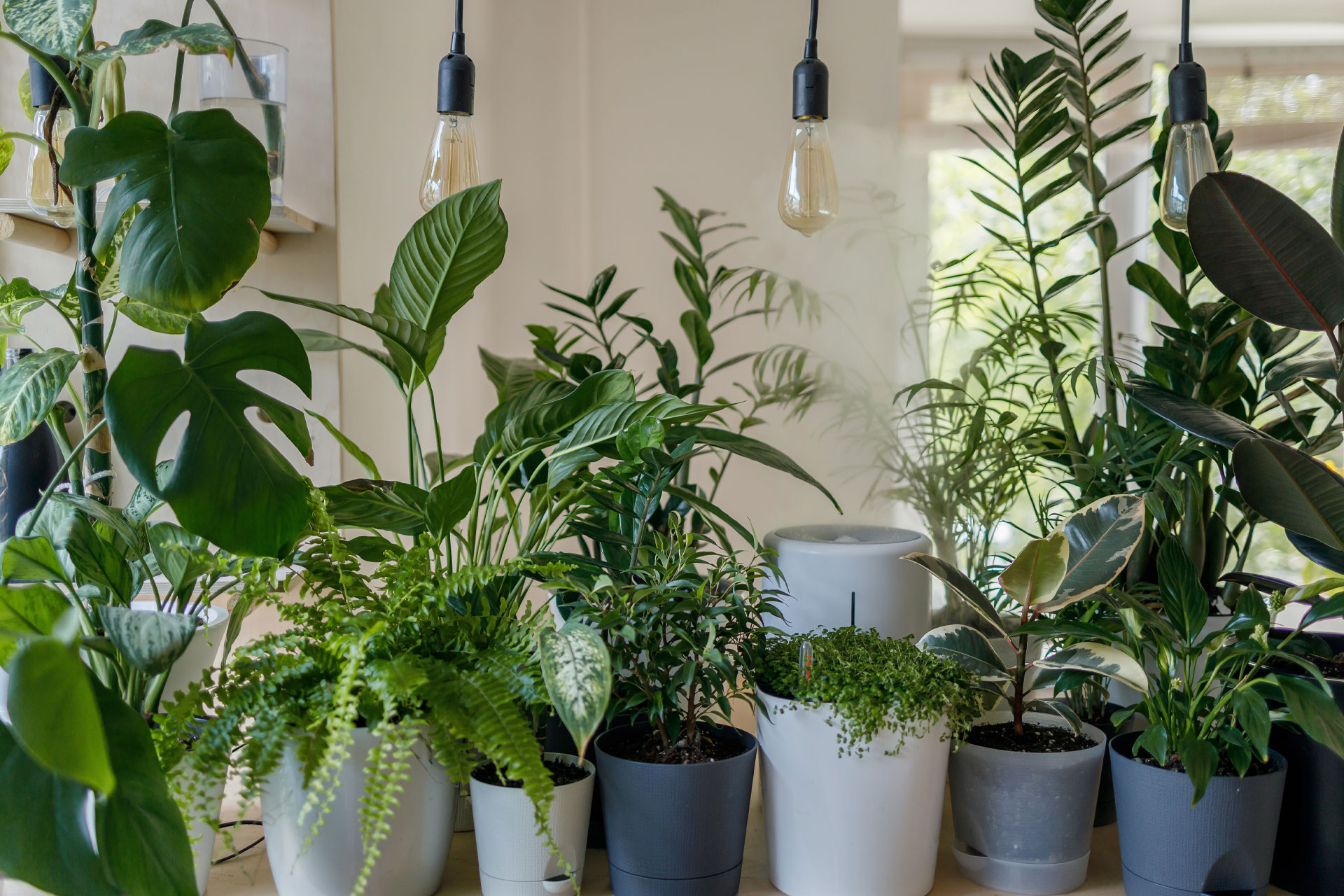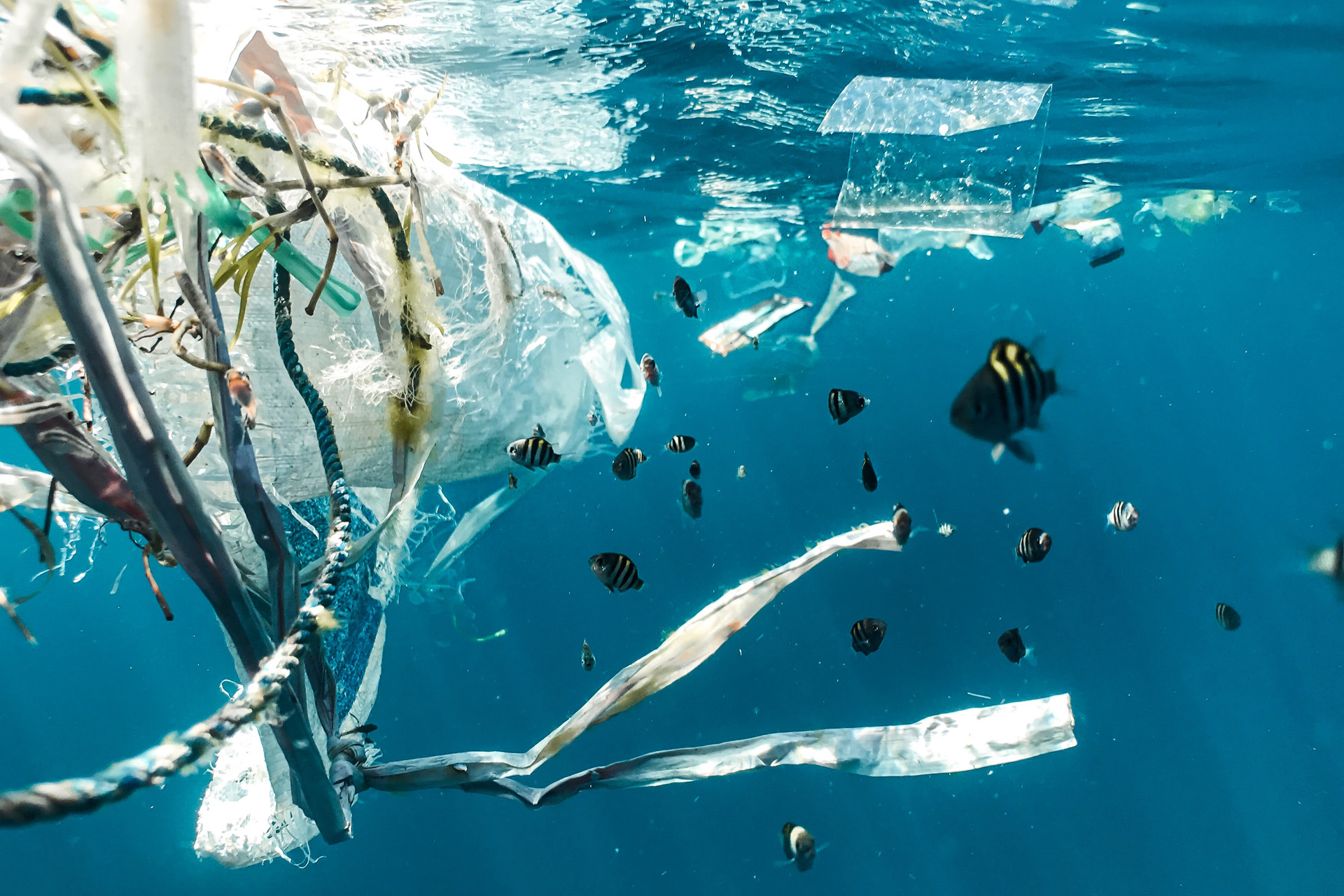
Green Heroes: Angelika Davenport, Founder of Tincture London
By
10 months ago
Angelika tells the story of her eco-friendly cleaning business
For the next in our Green Heroes column we speak with Angelica Davenport, founder of eco-friendly cleaning company Tincture London, tying in with International Day of Clean Air (7 September). Angelica became increasingly concerned about all the toxins her children were being exposed to both outside and inside her home after her son was diagnosed with severe asthma. This prompted her to create Tincture, a fully biodegradable, cruelty-free and organic range of cleaning products. These not only deliver outstanding cleaning without the use of artificial or synthetic ingredients, but also create awareness of the importance of maintaining good indoor air quality, which is on average five times more polluted than the air directly outside, according to The Environmental Protection Agency.
Angelika Davenport On Air Quality And Eco-Friendly Cleaning
What motivated you to launch Tincture?
Tincture was started out of a pure passion. My son was suffering from severe asthma and hay fever from a very young age, and I was increasingly concerned about the toxins and pollutants he was exposed to, both outside and inside of our home. During the worst periods, we would have to run an enormous air purifier day and night in his bedroom in a desperate attempt to aid his symptoms. Then, on top of this, my daughter started to develop dermatological problems. This forced us to look much more closely at her wash routine and consider what chemicals she might be exposed to when bathing etc. I wanted more than anything to protect my children in their own home. This is where my Tincture journey started.
I came across a body of research from the Environmental Protection Agency (EPA) that showed that the air in our homes is on average up to five times more polluted than the air directly outside, and that one of the main culprits affecting our indoor air quality was cleaning products. This inspired my mission to create products that not only delivered excellent performance but moreover were ‘healthy’, with no negative impact on the air we breathe, thus Tincture’s tagline, breathe clean.

How are Tincture’s products different from most other cleaning products?
Tincture’s award-winning formulations are all made with 100 percent natural, super high quality essential oils (our unique Tincture oil blends), organic botanical extracts and plant actives. Tincture’s main focus is to highlight the importance of good indoor air quality which directly affects our health – in particular that of our children. While most cleaning products release toxic VOCs (volatile organic compounds) which mix and react with other components in the air to create so-called ‘toxic cocktails,’ Tincture products do not. When you use our products in your home the air remains ‘green’.
For us it is a given that our products are safe for the environment, and safe for the oceans and all aquatic life. We push the boundaries further – how do they affect our health? Our lungs, our respiratory and endocrine systems when used in our homes? Our mission is to protect the health of your family, your home and that of our planet.
What other things can people do to reduce toxins and improve air quality at home?
- Ensure proper ventilation: Regularly open windows, open air vents and use exhaust fans to circulate fresh air and reduce indoor pollutants, especially during and after cooking and cleaning activities.
- Incorporate indoor plants: Certain plants such as spider plants, peace lilies, snake plants and boston fern are known for absorbing toxins like formaldehyde, benzene and xylene and thus help filter and purify the air. Some plants such as the snake plant even releases oxygen at night, making it great for a good night’s sleep.
- Avoid synthetic fragrances: Use natural alternatives like essential oils instead of air fresheners and scented candles that may contain harmful chemicals.
- Avoid open fires and wood burners: It produces dangerous PM2.5 that affects your health.
- Reduce plastic use: Minimise the use of plastic products, which can release toxins into the air, especially when heated.

Where do you source your materials?
All our products are made in the UK, and, as far as possible, our raw materials are locally sourced to reduce our carbon footprint. We also work with a leading fragrance house to sustainably source our natural oils and our organic botanical extracts.
What green business practices are you most proud of?
Tincture is proud of its commitment to sustainability, including using biodegradable ingredients, recyclable packaging, and promoting refillable products to reduce waste. Our white octagonal, antimicrobial forever Tincture bottles are infused with silver technology to make them bacteria free inside and outside forever. This means customers can safely refill their white Tincture bottle with our glass refill concentrate range and reuse them forever.
What makes you feel positive about a sustainable future?
The increasing awareness and shift towards sustainable living are encouraging signs for a sustainable future. More people are recognising the importance of protecting the environment and are making conscious choices to reduce their ecological footprint. The rise of eco-friendly products and the growing support for green businesses indicate a positive trend towards sustainability. Additionally, advancements in technology and renewable energy sources provide hope for a cleaner and more sustainable world.
And what are the facts that make you fearful?
Despite the positive trends, there are still significant challenges that make the future uncertain. The ongoing environmental degradation, such as deforestation, pollution, and climate change, poses serious threats to the planet. The slow pace of change in some sectors and the resistance to adopting sustainable practices can be disheartening. Additionally, the lack of stringent regulations and enforcement in some regions allows harmful practices to continue, exacerbating environmental issues.
Who is your own green hero?
- David Attenborough, who has spent decades educating the public about the natural world and the need for conservation.
- Greta Thunberg, who has become a global icon for climate activism. Her dedication to raising awareness about climate change and her efforts to hold leaders accountable have inspired millions around the world.
- Sam Bencheghib, who started Sungai Watch to protect Indonesia’s waterways by installing barriers that prevent plastic pollution from entering the ocean. The project cleans, collects, sorts and upcycles plastic from the rivers, with the help of volunteers and local communities; he recently launched the Ombak chair, made from 2000 green plastic bags discarded from Bali’s rivers.
- Elise Van Middelem, founder of Sugi Project, which plants ‘Sugi pocket forests’ in cities all over the world to combat the impact of the climate crisis by preventing flooding and mitigating the urban heat island effect as well as protecting and promoting biodiversity.
Name three other of your favourite brands who are doing the right thing and why you like them?
- Patagonia: a pioneer in corporate values, it builds the best products, causes no unnecessary harm, uses business to protect nature and is not bound by convention.
- Weleda: The first true green beauty brand, founded over 100 years ago by the Austrian philosopher and natural scientist Rudolf Steiner. I love their products, their culture and ethics.
- Riverford Organic Farmers: one of the first companies to promote organic farming and to launch local, seasonal, slow-grown veg subscription boxes.
Should we be green shaming the brands/companies who are doing nothing to change their ways?
While it is important to hold companies accountable for their environmental impact, I do not think green shaming may be the most effective approach. Positive reinforcement and encouraging change can often lead to better results. Highlighting and supporting brands that are making efforts to be sustainable can create a positive example for others to follow. Constructive dialogue and collaboration can also help drive meaningful change.
What are the biggest challenges in running a sustainable business?
Running a sustainable business comes with several challenges, including:
- Sourcing sustainable materials: Finding reliable suppliers of eco-friendly materials can be difficult and often more expensive.
- Balancing cost and sustainability: Sustainable practices can sometimes be costlier, making it challenging to balance profitability with environmental responsibility.
- Educating consumers: Raising awareness and educating consumers about the benefits of sustainable products can be time-consuming and requires ongoing effort.
- Regulatory compliance: Navigating and complying with environmental regulations can be complex and demanding.
What advice can you give to other businesses who are wanting to do better?
- Start small: Begin by making small, manageable changes and gradually incorporate more sustainable practices.
- Educate your team: Ensure that your team understands the importance of sustainability and is committed to your goals.
- Be transparent: Communicate openly with your customers about your sustainability efforts and progress.
- Collaborate: Work with other businesses, organisations, and stakeholders to share knowledge and resources.
- Stay informed: Keep up-to-date with the latest developments in sustainability and continuously seek ways to improve.
What are your views on the fight against plastic pollution?
Reducing plastic use is crucial for protecting the environment. Businesses and individuals should prioritize reusable, biodegradable, and eco-friendly alternatives. Governments should implement policies to reduce plastic production and waste, and support recycling initiatives. Public awareness campaigns can also help educate people about the impact of plastic pollution and encourage more sustainable choices.

Three things we should all, as individuals, be doing to help in the climate change fight?
- Reduce, reuse, recycle: Minimise waste by reducing consumption, reusing items, and recycling materials.
- Support sustainable products: Choose products that are eco-friendly and made from sustainable materials.
- Advocate for change: Support policies and initiatives that protect the environment and encourage others to do the same.
How do you think corporations and governments could help to improve air quality?
- Implement stricter regulations: Enforce regulations on pollutants and emissions to reduce outdoor and indoor air pollution.
- Invest in renewable energy: Promote and invest in renewable energy sources to reduce reliance on fossil fuels.
- Support public transportation: Improve and expand public transportation options to reduce the number of vehicles on the road.
- Promote green infrastructure: Encourage the development of green spaces and infrastructure that can help improve air quality.






